Politics and Government
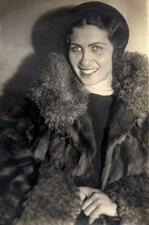
Shulamit Bat-Dori
Shulamit Bat-Dori defied notions about the inappropriateness of theater in the kibbutz, creating popular and acclaimed plays for the masses. Bat-Dori joined Ha-Shomer ha-Za’ir and made Aliyah in 1923, bringing her passion for theater, dance, music, and languages to Kibbutz B (later Mishmar ha-Emek). She wrote plays and founded the Kibbutz theater.

Yokheved Bat-Miriam (Zhelezhniak)
Yokheved Bat-Miriam was part of a group of pioneering Hebrew women poets in the 1920s. Her poetry commemorates the religious and emotional lives of Jewish women and frequently focuses on women of the Bible who composed and/or recited poetry.
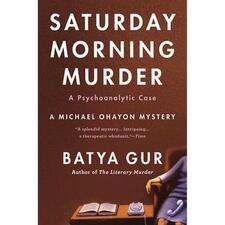
Batya Gur
Israeli author Batya Gur is best known for her mystery novels centering on the investigations of detective Michael Ohayon. Her work brought literary complexity to the Hebrew mystery novel.
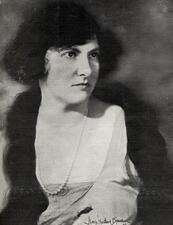
Marion Eugénie Bauer
Marion Eugenie Bauer was a modernist and experimental composer whose musical scholarship advocated for women’s voices to be heard and revived interest in female composers. As a teacher, writer, and composer, she was actively involved in many music and composition organizations, frequently as the only woman in a leadership position.
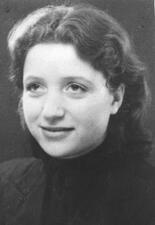
Baum Gruppe: Jewish Women
Formally created in 1938 and 1939, the Baum group was a German anti-Fascist resistance organization. Initially its work consisted of making and distributing anti-Fascist propaganda, but on May 18, 1942, the Baum group joined the effort to set fire to an anti-Soviet exhibit at a public park in Berlin. The damage was minimal and shortly thereafter, the Gestapo arrested hundreds of Jews in retaliation and twenty-two members of the Baum group were executed.

Vicki Baum
Writer, playwright, and screenwriter Vicki Baum is best known for her book, adapted into both the Broadway play and Oscar winning film, Grand Hotel. She wrote over 30 books and became one of the world’s best-selling authors of her time. Her works frequently depict powerful, self-reliant women.
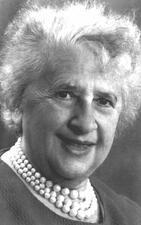
Sarah Bavly
Dutch-born Sarah Bavly was a pioneer nutritionist in the Yishuv who laid the groundwork for Israel's nutritional infrastructure and educational programming, directing Hadassah's hospital nutrition departments and school lunch programs and establishing the State's first College of Nutrition.

Dorit Beinisch

Olga Belkind-Hankin
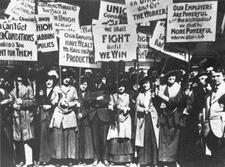
Dorothy Jacobs Bellanca
Born in Latvia before immigrating to Baltimore as a child, Dorothy Jacobs Bellanca was one of America’s most remarkable women’s labor leaders. An outstanding union organizer and a captivating speaker, Bellanca understood the problems of the working class—people of all genders, ages, and backgrounds—and sought to improve conditions for workers.

Ruth Ben Israel
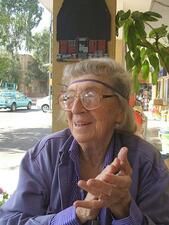
Netiva Ben Yehuda
Netiva Ben Yehuda was a Jewish-Israeli writer, poet, broadcaster, and Palmah officer. Ben Yehuda’s works surround her experiences before, during, and after her service in the Jewish underground Palmah and her dedication to enriching the lexicon of spoken Hebrew.
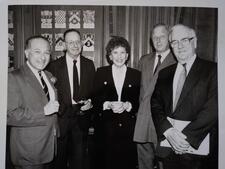
Hadassa Ben-Itto
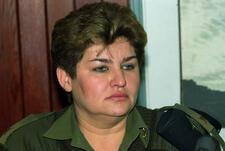
Yehudit Ben-Natan
Yehudit Ben-Natan is most known for her time as the head of the Israel Defense Forces’ Women’s Corps, where she waged a fierce campaign against the conservatism that marked everything related to the opening to women of new military occupations. She was particularly active in promoting women serving in the career army and tried to integrate women into combat units.

Miriam Ben-Porat
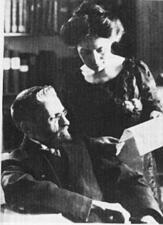
Hemdah Ben-Yehuda
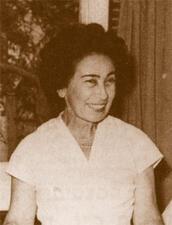
Mina Ben-Zvi
Mina Ben-Zvi was among the first women to serve in the military in Palestine, first as part of the British Auxiliary Territorial Service, then in local Zionist paramilitary organizations that eventually became the Israeli Defense Forces. She became the first commanding officer of the IDF’s Women’s Corps in 1948.
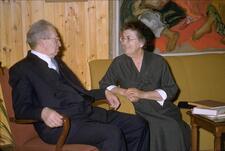
Rahel Yanait Ben-Zvi
Rahel Yanait Ben-Zvi was the second First Lady of Israel, wife to President Yizhak Ben-Zvi. Before and after Ben-Zvi’s tenure, she was active in the labor movement in Palestine and Israel and in the independence movement, as well as a prolific writer and recorder of her experiences in Erez Israel.
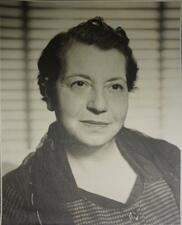
Hélène Cazes Benatar
Hélène Cazes Benatar was a Moroccan-born human rights lawyer who rescued thousands of refugees in North Africa during World War II. She was a life-long advocate for individual rights and political equality, especially for disenfranchised Maghrebi Jews. During World War II, she fought to protect victims of pro-Fascist Vichy rule; post-war, she promoted the migration of Moroccan Jews to Palestine and elsewhere.
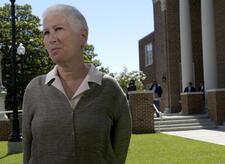
Rita Schwerner Bender
Rose I. Bender
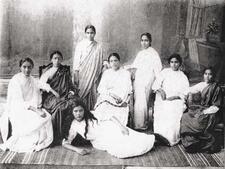
Bene Israel
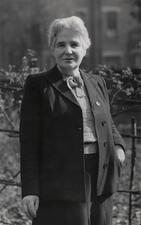
Helen Bentwich
Helen Bentwich was an active community organizer, activist, and local politician. She and her husband, Norman, aided in helping people escape Nazi persecution and split their time between Palestine and England for many years.
Margarete Berent
Margarete Berent was the first female lawyer to practice in Prussia and the second female lawyer ever licensed in Germany. In 1925 she opened her own law firm in Berlin and, after fleeing Nazi Germany, opened her own firm in the United States. Not only was she the first female lawyer and the head of her own law firm, but she was also an ardent feminist and active in promoting opportunities for women.
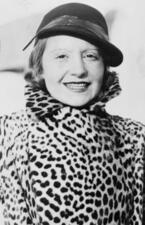
Elisabeth Bergner
Elisabeth Bergner, born in Austrian Galicia, was one of the most successful and popular stage and screen actresses in pre-World War II Germany, known for her superior artistic skills and wide variety of roles. During the war, she helped actors escape Germany. She was honored with the Schiller Prize of the City of Mannheim, the Ernst Lubitsch Prize, and the Austrian Cross of Merit for Science and Art.


